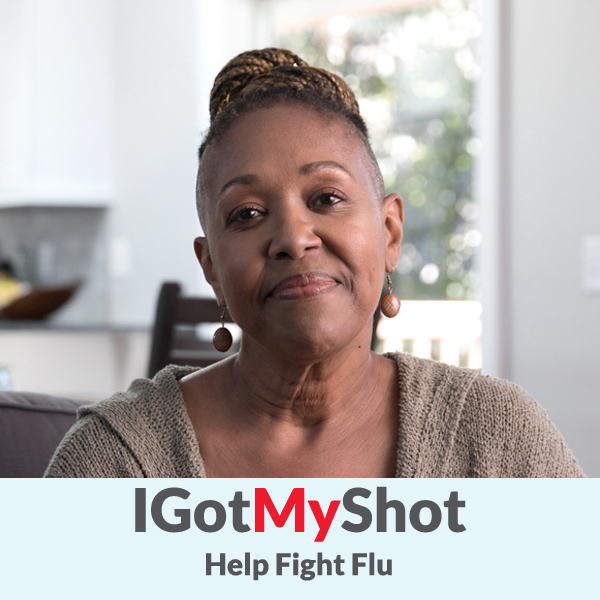This post is made possible by the American Lung Association, in collaboration with Sanofi Pasteur as part of an Influencer Activation for Influence Central and all opinions expressed in my post are my own. As with anything medical, please consult your physician.
I know you’re probably thinking…it’s March, isn’t it too late for a flu shot? No, and here are 3 reasons why it’s NOT too late for a flu shot.
If you haven’t received your flu shot yet, it’s not too late! Fall and winter is peak flu season. According to the CDC (Centers for Disease Control), the 2017 – 2018 flu season reached its peak from January to February, and continued through the end of March. This made last year’s flu season one of the longest flu seasons in years. So, if you’ve been dragging your feet and think it’s too late to get vaccinated, there’s still time!
Here are 3 Reasons Why It’s NOT too Late for a Flu Shot:
1. Anyone can get the flu
While you may feel healthy and fit as a fiddle, ANYONE can get the flu. Influenza or the flu is a serious respiratory illness. It can easily be spread from person to person, mostly through droplets (up to 6 feet away) made when coughing, sneezing, or talking. And the scary part, a seemingly healthy person can be unknowingly spreading the flu before even showing symptoms of being sick.

Here’s a picture of me and by looking at it, I look in good health and feel pretty healthy. You would never know I have a chronic disease that makes me susceptible to severe complications due to catching the flu.
[click_to_tweet tweet=”Anyone can get the flu. It’s not too late to get vaccinated. #ad #IGotMyShot #IC @LungAssociation” quote=”3 reasons too get a flu shot #IGotMyShot”]
2. To Prevent death and Complications
There’s an increased risk of flu-related complications for young children, pregnant women, people with chronic illness, and adults 50 years of age and older. Health officials recommend anyone 6 months of age and older, with some exceptions, to get vaccinated each year with an age appropriate influenza vaccine Yes, vaccinate every year because each flu season is different. Flu viruses constantly change, so it’s best to get the most up to date flu vaccine each year.
Vaccination is especially important for adults 50 years and older because 70% of older adults have one or more chronic health conditions that can be exacerbated when combined with the flu.
- Those with cardiovascular disease can have worse symptoms and an increased risk of a stroke or heart attack after having the flu.
- The flu can trigger severe inflammatory responses and worsen respiratory disorders, like asthma and COPD (chronic obstructive pulmonary disorder), which can lead to pneumonia.
- People with diabetes may have a harder time controlling their sugar levels, have worse symptoms, and a harder time to fight the flu.
As mentioned above, adults 50 years and older with diabetes can have worse flu related complications. Both my husband, who is 53 years old, and myself have type-2 diabetes. It’s important for us to get vaccinated because even if we get the flu, it can help make our flu symptoms milder and help us avoid hospitalization.
3. To help protect yourself and help prevent spreading flu to the people around you
To me, this is one of the best reasons to get a flu shot. Vaccination not only helps protect me, but also helps prevent spreading flu to the people around me. This was especially important this past Thanksgiving when I met my newborn baby nephew for the first time and was around a family member battling cancer. I would have felt awful if I spread the flu virus to one of them.

While it does take approximately 2 weeks after you receive a flu shot for antibodies to develop in the body and help provide protection against the flu, you can get the flu any time of the year. Flu season can last through Spring and I’m sure nobody wants to start the year catching the flu, right?
As always, talk to your doctor about your health conditions and the best flu shot options for you. For more flu information, you can also visit the American Lung Association’s GetMyShot.org to learn about the flu risk factors, take a flu quiz, and how to prevent the flu.






